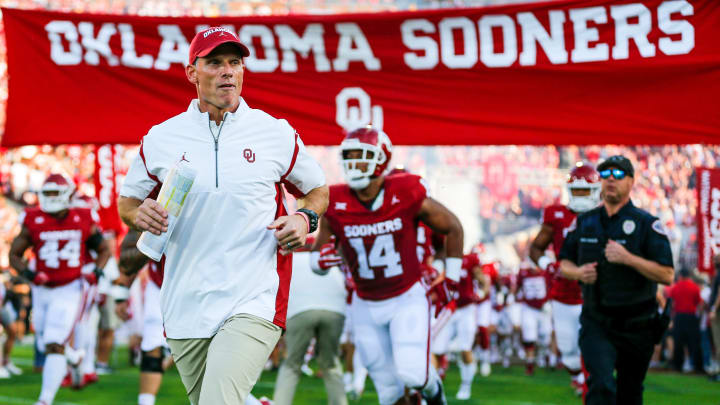Report: Mandatory Injury Reports in SEC Would Continue the Fundamental Shift in College Sports

In this story:
In 2024, the very face and spirit of college athletics continues to change in real time.
On Monday, CBS Sports reported that the Southeastern Conference is moving toward a model that requires disclosure of football injury reports.
“A mandatory injury report hasn’t been officially approved, but multiple sources indicated the details are close to being finalized and are expected to be in place at the start of the 2024 season,” CBS Sports wrote. “A decision could come as early as next week when league athletic directors are scheduled to meet.
Coaches and athletes fear that going to an NFL-type model — a similar reporting system was enacted last year by the Big Ten Conference, with designations of either questionable or out — at worst might create a danger of further injury for the athletes. But proponents say it will legitimize the game’s continued migration toward legalized sports gambling.
Three years into the ever-evolving NIL game, this would be simply the latest in a sea change of fundamental differences in the college game in 2024.
The House v. NCAA settlement in July resulted in a decision that will pay student-athletes a share of the revenue by NCAA member institutions, which has been projected north of $20 million per school.
Also in July, it was reported that as part of the House settlement, the NCAA will eliminate scholarship limits by sport and allow for roster expansion with full scholarships — from 85 to 105 in football, from 11.7 to 34 in baseball, from 12 to 25 in softball, from 13 to 15 in basketball, among others.
Liberal transfer portal regulations, continuing changes to NIL legislation and now a slow merger with sports betting illustrate the sweeping foundational changes college sports have undergone just in this calendar year, but it seems like that more changes are ahead.
We’ve officially crossed the rubicon https://t.co/wVsS91jTAB
— John E. Hoover 🌮 (@johnehoover) August 6, 2024
At SEC Media Days in July, SEC commissioner Greg Sankey addressed what some see as a growing specter of sports gambling.
“I’ll say again, it's not good enough for states just to allow legalized sports gambling. They owe protection to the participants, and the online and direct pressures that come from those who aren't successful in their gambling decisions affect our participants in every state. Legalized sports gambling needs to put in place clearly stated laws that protect participants from hostile behavior.”
“We've also experienced changes in sports gambling, and we've seen some really difficult stories play out at the professional level where people have lost their careers. Last year I spoke about a head coach who had lost an opportunity in our own league.

John is an award-winning journalist whose work spans five decades in Oklahoma, with multiple state, regional and national awards as a sportswriter at various newspapers. During his newspaper career, John covered the Dallas Cowboys, the Kansas City Chiefs, the Oklahoma Sooners, the Oklahoma State Cowboys, the Arkansas Razorbacks and much more. In 2016, John changed careers, migrating into radio and launching a YouTube channel, and has built a successful independent media company, DanCam Media. From there, John has written under the banners of Sporting News, Sports Illustrated, Fan Nation and a handful of local and national magazines while hosting daily sports talk radio shows in Oklahoma City, Tulsa and statewide. John has also spoken on Capitol Hill in Oklahoma City in a successful effort to put more certified athletic trainers in Oklahoma public high schools. Among the dozens of awards he has won, John most cherishes his national "Beat Writer of the Year" from the Associated Press Sports Editors, Oklahoma's "Best Sports Column" from the Society of Professional Journalists, and Two "Excellence in Sports Medicine Reporting" Awards from the National Athletic Trainers Association. John holds a bachelor's degree in Mass Communications from East Central University in Ada, OK. Born and raised in North Pole, Alaska, John played football and wrote for the school paper at Ada High School in Ada, OK. He enjoys books, movies and travel, and lives in Broken Arrow, OK, with his wife and two kids.
Follow johnehoover